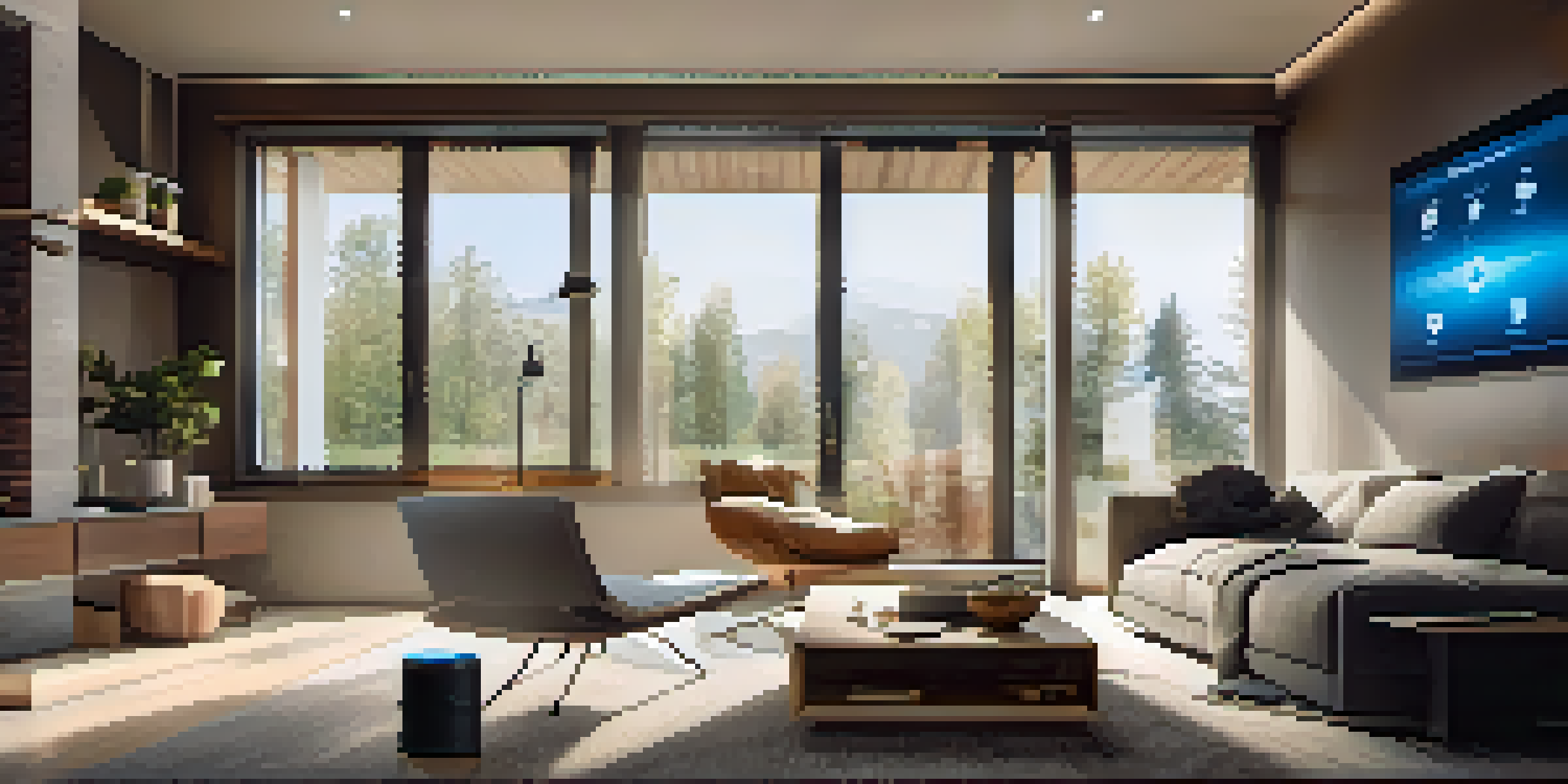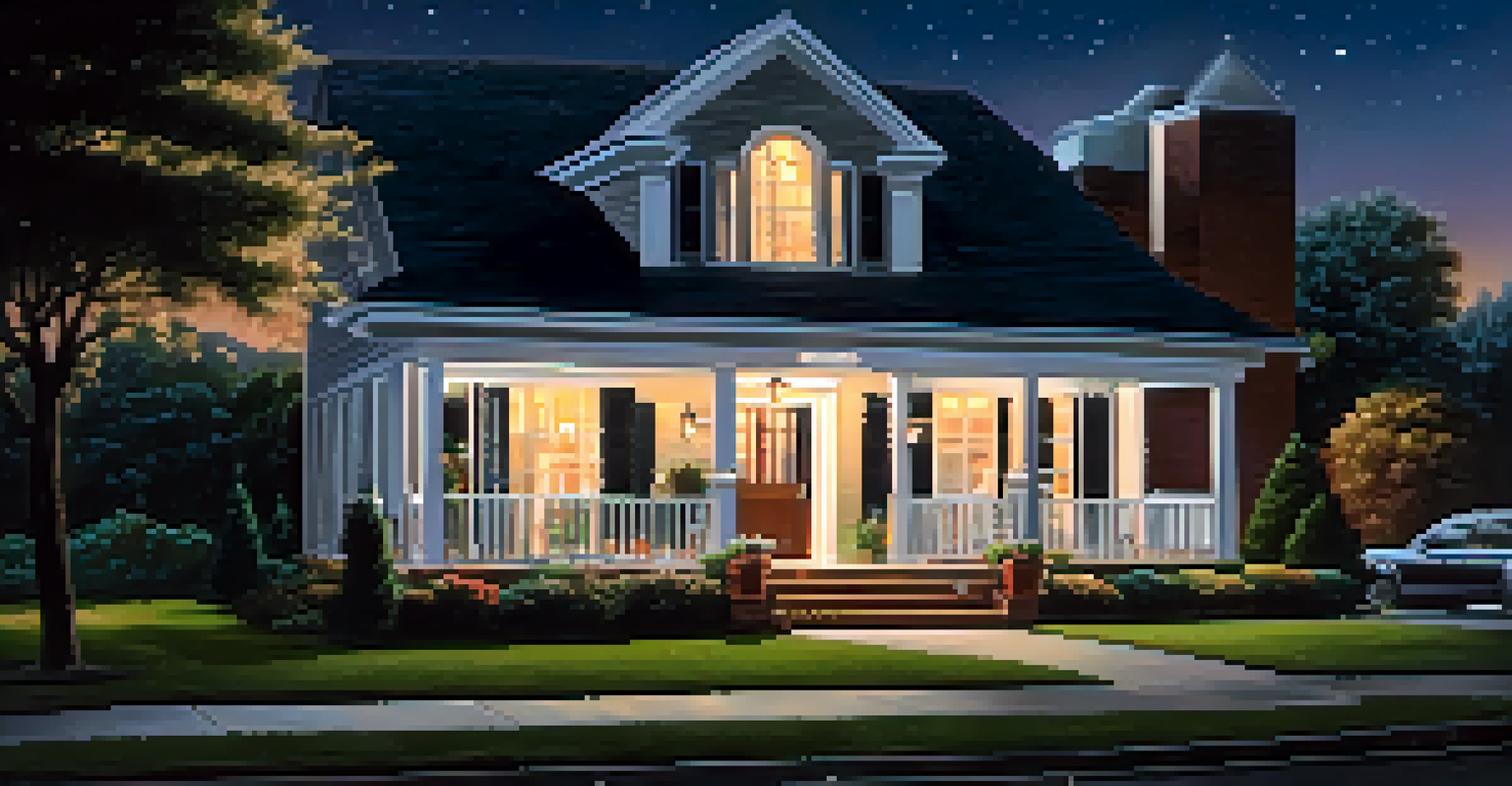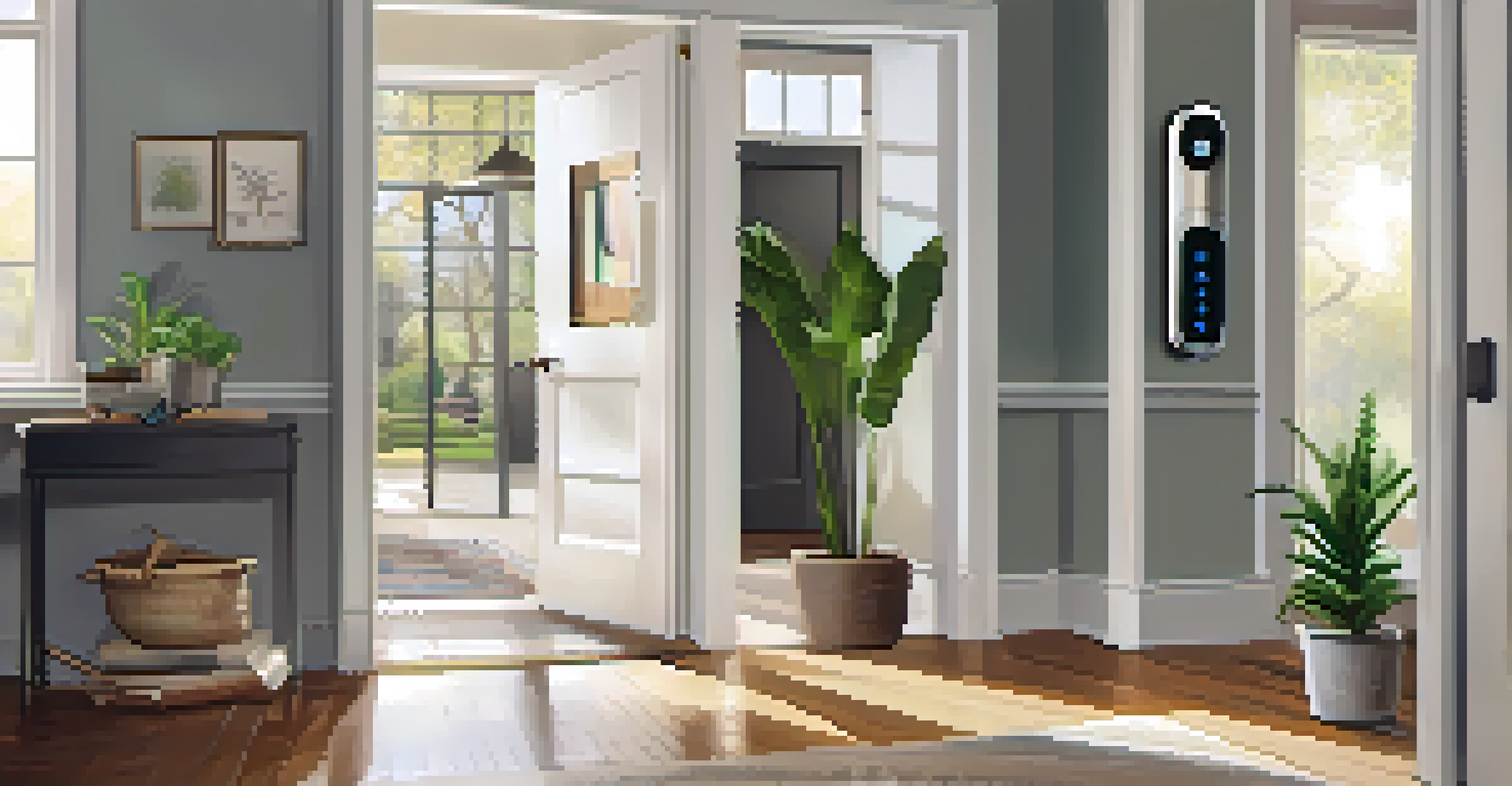How Home Automation Can Improve Home Security

Understanding Home Automation and Its Benefits
Home automation refers to the integration of technology in your household to enhance comfort, efficiency, and security. Imagine controlling your lights, thermostat, and security systems from a single app on your smartphone. This seamless control not only adds convenience but also significantly enhances the security of your home.
Home automation is the future of home security, providing a seamless way to monitor and manage your home from anywhere.
One of the primary benefits of home automation is the ability to monitor your property remotely. Whether you're on vacation or at work, you can receive real-time updates and alerts about unusual activity. This peace of mind allows you to address potential security threats before they escalate.
Moreover, home automation can deter criminal activity. When potential intruders notice lights flickering or hear sounds coming from inside the house, they might think twice before attempting a break-in. This proactive approach makes your home a less appealing target for burglars.
Smart Surveillance Cameras: Keeping an Eye on Things
Smart surveillance cameras are a cornerstone of modern home security. Unlike traditional cameras, these devices offer features like motion detection, night vision, and real-time alerts. You can easily access the camera feed from your smartphone, providing you with peace of mind no matter where you are.

Many smart cameras also come equipped with two-way audio, allowing you to communicate with anyone on your property. For instance, if a delivery person arrives while you’re at work, you can instruct them to leave the package at your door. This added layer of interaction not only enhances security but also provides convenience.
Home Automation Enhances Security
Integrating technology into home systems allows for remote monitoring and increased safety.
Additionally, some cameras integrate with other home automation systems, allowing for a coordinated security effort. Imagine your lights turning on automatically when motion is detected outside, creating the illusion that someone is home. This synergy between devices creates a robust security network.
Smart Locks: Secure Access at Your Fingertips
Smart locks have revolutionized how we think about securing our doors. With a smart lock, you can lock and unlock your door remotely, making it easier to grant access to trusted visitors. Forgetting to lock the door becomes a thing of the past, as you can check its status through your smartphone.
The greatest security you can have is peace of mind, and home automation helps you achieve just that.
These locks often come with unique access codes for different users. For example, you can give your neighbor a temporary code for when you’re away, ensuring they can water your plants without needing a physical key. This eliminates the hassle of managing spare keys and enhances overall security.
Moreover, many smart locks provide real-time alerts when someone enters or exits your home. This feature is particularly useful for families with children or roommates, as you can monitor who is coming and going. Such oversight fosters a sense of safety and control.
Automated Lighting: A Simple Yet Effective Deterrent
Automated lighting is one of the easiest and most effective ways to enhance home security. By programming your lights to turn on and off at specific times, you create the illusion that someone is always home. This strategy can significantly deter potential intruders.
You can also integrate smart lighting systems with your surveillance cameras. For instance, when motion is detected outside, the lights can automatically flood the area with light, startling any unwanted visitors. This immediate response can discourage criminal activity.
Smart Devices Provide Real-Time Alerts
Devices like smart locks and cameras send instant notifications to keep homeowners informed.
Additionally, smart lighting can be controlled remotely, allowing you to adjust settings while away. If you’re on vacation and want to make it look like someone is home, a few taps on your phone can create a realistic ambiance that keeps your home safe.
Environmental Sensors: The Unsung Heroes of Security
Environmental sensors, such as smoke and carbon monoxide detectors, play a crucial role in home security. These devices not only protect you from fire and gas leaks but can also alert you to potential break-ins. For example, some sensors can detect unusual vibrations indicating a break-in attempt.
Smart environmental sensors can send real-time alerts to your phone, ensuring you’re always in the loop. Imagine being notified about smoke or gas leaks even when you’re miles away. This capability allows you to take immediate action, potentially saving lives and property.
Moreover, many of these sensors integrate seamlessly with your home automation system, enhancing overall security. For example, if a smoke detector goes off, your smart lighting can turn on, guiding you safely out of the home. This interconnected approach makes your security system more effective.
Remote Monitoring: Keeping You Connected to Your Home
Remote monitoring is a game-changer in home security, allowing homeowners to keep an eye on their property from anywhere. With smart home systems, you can access live feeds from your cameras and receive alerts about unusual activity, all from your smartphone. This connectivity provides a sense of control, no matter where you are.
Many systems also offer cloud storage for video footage, giving you the ability to review past events. If you notice a suspicious person in your yard, you can easily check the footage to determine if further action is needed. This feature enhances security by allowing you to document incidents.
Comprehensive Security Strategies Needed
A well-rounded approach combining various technologies is essential for optimal home protection.
Additionally, some home automation systems can integrate with local law enforcement. In the case of a verified break-in, you can alert authorities directly through your system. This direct line of communication can expedite response times and improve overall safety.
Creating a Comprehensive Security Strategy
While home automation greatly enhances security, it's essential to have a comprehensive strategy in place. This involves evaluating your home's vulnerabilities and determining which devices will provide the most protection. For instance, if you live in a high-crime area, investing in smart locks and surveillance cameras may be your top priority.
Incorporating a mix of devices can create a robust security environment. Imagine a scenario where your smart camera detects motion, triggering your lights to turn on, while simultaneously alerting you and your neighbors. This multi-layered approach can significantly reduce the risk of break-ins.

Moreover, regular updates and maintenance of your devices are crucial to ensure they function optimally. Just like changing the batteries in smoke detectors, keeping your smart devices up-to-date enhances their effectiveness. A well-maintained system provides not only security but also peace of mind.